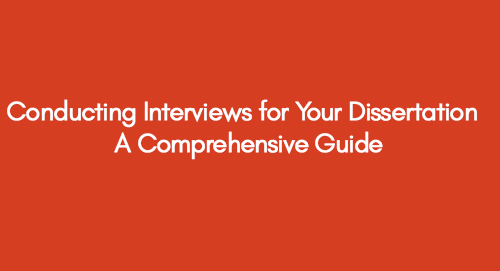
How to Write a Critical Reflection? Definition and Explanation
October 1, 2022
How to Write an Acknowledgements | Tips for Thesis & Dissertation
October 4, 2022In academic writing, precision, clarity, and cohesion are paramount. To excel in this domain, one must harness the power of language with finesse and artistry. The Academic Phrasebank, like a well-organized toolbox for scholars, emerges as an invaluable resource, offering an extensive collection of carefully curated phrases, expressions, and templates.
Explore Tips on Academic Writing Here
These linguistic gems serve as the building blocks for crafting scholarly documents that are comprehensible and persuasive. In this article, we delve into the world of the Academic Phrasebank, exploring its role as a catalyst for elevating the quality and impact of academic writing.
Find a Guide to Write in an Academic Style Here
Whether you are a student striving for excellence or an established academic honing your craft, the Academic Phrasebank serves as a trusted companion, facilitating the articulation of complex ideas and fostering a deeper engagement with your readers.
What is Academic Phrasebank?
The Academic Phrasebank is a resource for academic writers in general. It seeks to present the basic phraseological details of academic writing, organized according to a research paper's or dissertation's key components.
The resource was created mainly for academic and scientific authors who are not native English speakers. However, native-speaker authors can find a significant amount of information useful. According to current data, the majority of consumers are native English speakers.
The phrases and categories under which they are presented can be used merely to help you think about the substance and organization of your writing, or they might be included in your writing when appropriate. When using a term, imagination and alteration are required most of the time.
The Academic Phrasebank does not have a disciplined focus. Nonetheless, it should be precious for writers who intend to report on empirical research. The words are content-neutral and general, so utilizing them does not constitute plagiarism because you are not copying other people's ideas.
Importance of Academic Phrasebank
Academic writing differs from everyday writing. Most words and terminology used in regular writing are colloquial when used in research papers. The utilization of formal language in writing is one of the prerequisites of academic writing.
Formal language is the usage of generally acknowledged scientific terminology and phrases often utilized by your peers in your subject field. In other words, the language you employ in your academic essay or article should be consistent with that of your academic or research community.
It takes time and effort to develop such a talent. Typically, your academic supervisor will advise you on this. When you write a research paper, your academic supervisor will first examine it and provide comments to enhance the language.
The advantage of using a decent academic phrasebank is that you may start polishing your writing immediately by looking up literary terms and scientific terminology while writing your initial draft. It reduces the need for several modifications because your first version will be academically acceptable.
How Does Phrasebank work?
The majority of the terms in this resource are extracted from reliable academic sources. The initial corpus from which the sentences were ‘harvested’ included 100 doctoral dissertations from the University of Manchester. However, sentences from scholarly writings from various disciplines have been and continue to increase.
In most cases, the sentences have been reduced and, when necessary, ‘sifted’ from their specific academic content. Where relevant words have been provided for illustrative purposes, they are replacements for the original terms. The following questions are asked while selecting a phrase for integration in the Academic Phrasebank:
- In an academic text, does it serve a meaningful communication purpose?
- Is it made up of collocational and formulaic elements?
- Are the idiomatic expressions (nouns, verbs, and adjectives) generic?
- Does the combination sound natural to a native English writer or speaker?
Structure of Academic Writing in Phrasebank
The academic phrases in the phrasebank are commonly structured in a specific pattern, so you will need to utilize them in a scientific article. Click on each category to obtain the academic phrases.
- Introduction
- Problem, Solution & Difficulties
- Literature Review
- Previous Evidence and Findings
- Research Gap
- Your Work
- Section Intro and Scope
- Materials and Methods
- Measurements and Calculations
- Technical Statements
- Data Collection and Processing
- Data Analysis & Presentation
- Statistics
- Errors and Discrepancies
- Results
- Discussion
- Acknowledgements
Furthermore, there are several general types of academic phrases, which include:
- Reasons, Causes & Explanations
- Figures, Plots and Tables
- Explain or Describe
- General Statements
How to Use Phrasebank?
Install Your Desired Academic Phrasebank
To start using the phrasebank resource, you first need to install your desired phrasebank add-in to MS Word. After that, you are good to go.
Start by Getting Ideas
Choose a piece of text in MS Word and then press the 'Writing Ideas' icon to explore the academic phrasebank for writing topics and ideas. The software will analyze the text and return suitable categories from the academic phrasebank. The academic terms associated with the categories are then accessible by just clicking on the category name.
Paraphrasing Tool
Some add-ins include a paraphrasing tool that enables users to browse the academic phrasebank for rephrasing ideas. The user can choose a sentence in an MS Word document to paraphrase or summarize and then click the 'Paraphrasing Tool' button. The program will search the academic phrases and provide phrase templates that are appropriate to the given content.
The user can use this collection of phrases to generate paraphrase suggestions for the text. Furthermore, the user may add similar words in the search results panel by selecting the more button(...) next to each phrase template.
Review the following:
- How to Write a University Essay
- How to Craft a Captivating Discussion in an Academic Report
- How to Write an Academic Essay: Tips and Examples
Need Help with Your Assessment?
Premier Dissertations is here to assist if you seek help writing in the third person. We have a team of experienced and talented writers who can create creative and engaging narratives in the third person that will capture your audience’s attention. Contact us today by simply dropping us a message on Whatsapp message or by Email, and we will get back to you within 24 hours.
Get 3+ Free Dissertation Topics within 24 hours?


























